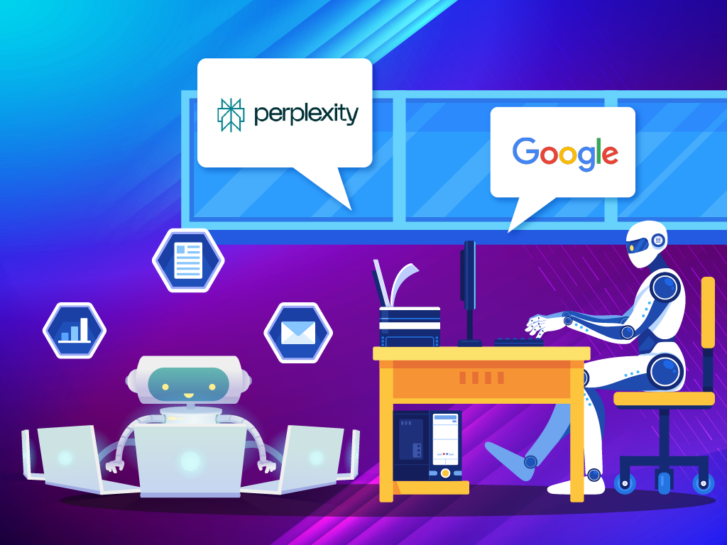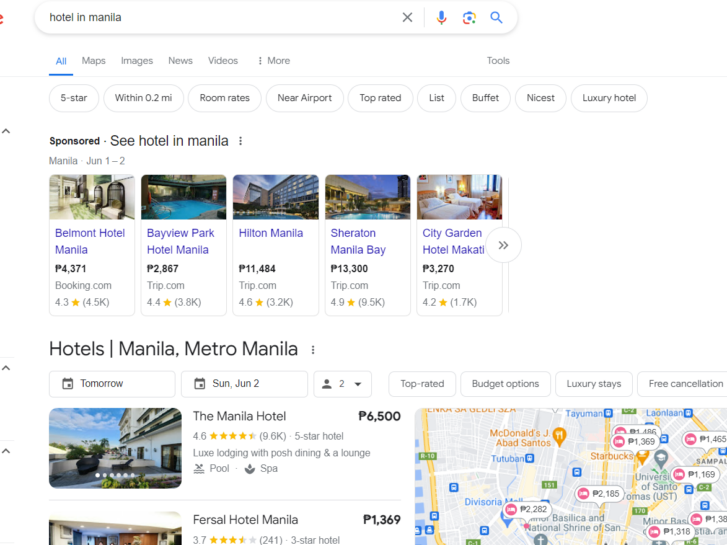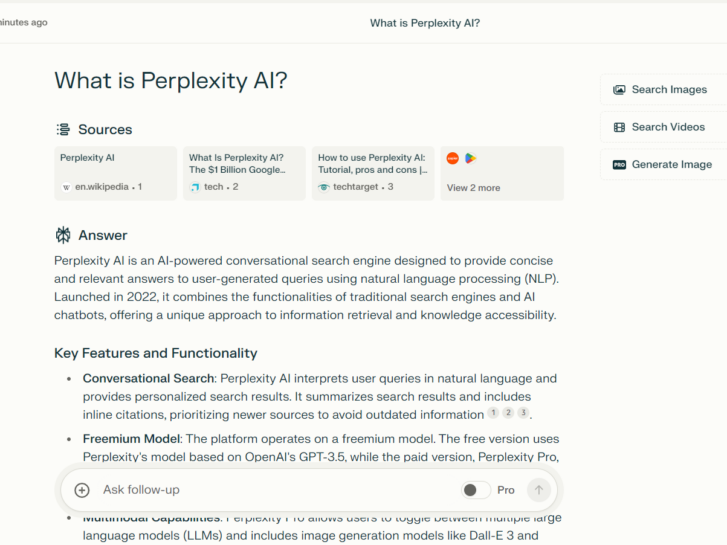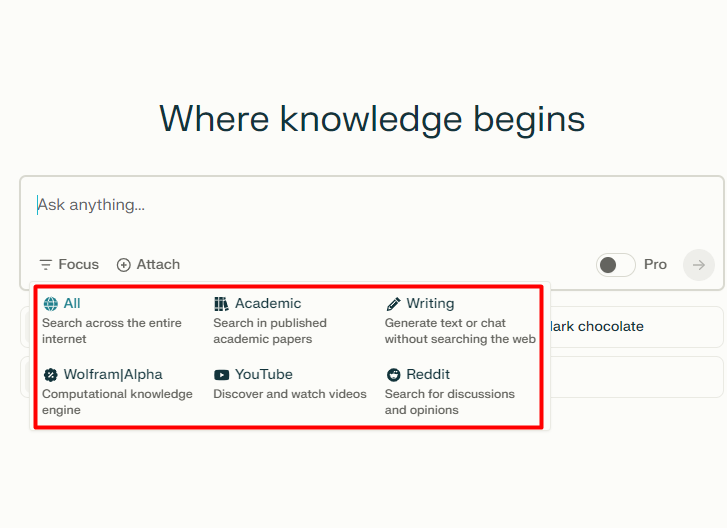
The relationship we used to have with Google was simple. It was a fair-use argument: we give Google content to index, and we get traffic in return. We do a good and ethical job at creating that content, we get rewarded with better rankings than those who do not.
AI has essentially turned all that on its head. Google I/O 2024 announced several AI-powered applications, the most notable being AI Overviews, which has since been rolled out in Google US.
It’s the beginning of a disruptive search landscape, and we have very little idea how that’s going to go. And, considering how Google plans to use AI Overviews, one has to wonder whether or not this is still fair to websites.
Worse, it brings us to this question: “What will happen to Google — and is it still valuable for me to work towards ranking in Google’s search results?”
The State of Google Search in 2024
Google search results today are almost unrecognizable from what it was a few years ago. Gone is the era of 10 blue links, replaced now with dynamic, “enriched” search features, displayed in such a way that, theoretically, makes it easier for a user to gain more and more information right on the results page.

In essence, Google is becoming less of a search engine and more of a portal for users.
The biggest step towards that was the launch of the Search Generative Experience (SGE). Though all their documentation and PR say that this phase is an experiment, it’s clear Google is trying to lay a foundational long-term change to the way people search on their platform.
To create this new search experience, SGE was powered by generative AI, which added another layer of input and output, enabling Google to not only understand more complex questions but answer them and guide users to new ones.
But that’s all in theory, and most technology sounds really, really good when it’s just in theory. But the reality of this shift in search is more consequential than most people think.
Moving towards an AI-powered search experience means reshaping how billions and billions of people find information online — and how Google makes money.
What Are AI Overviews
Using Google’s AI ******, search queries are analyzed, and an answer is formulated. This then provides an AI card with links to publishers beneath the overview section.
They differ from featured snippets because they don’t directly show and link relevant content from websites. Instead, content is scraped, analyzed, and mashed together to provide what the AI thinks is the most comprehensive and accurate answer to your query.
If you’ve ever tried to teach yourself something complicated and reword those super technical concepts into what you think are layman’s terms, you know this is a difficult task, and one that can easily be done wrong.
And yes, even AI trained on countless datasets can be wrong. Other articles have covered how bad the results of Google’s AI Overviews are so far, so I won’t even bother. But it’s bad, and not very reassuring to anyone using it.
Why it Matters for Websites
Ok, so Google’s newest tool isn’t doing great, why should you care? It’s not like Google hasn’t been changing things up in the last decade, and this isn’t the first time its newest products have flopped. It’s not the first time that Google’s decentered organic results, either.
But this change won’t just push organic search results further below the fold — it’ll completely change the traditional search journey of a Google user.
By taking steps towards becoming a search portal, Google enables users to get answers to their questions without ever having to visit a website. And, it’s not unlikely that in the next few years, Google can evolve to allow users to fulfill transactions within the search interface itself.
How it Affects Independent Websites
Where is AI Overview getting its answers? From us, from SEOs, content creators, and webmasters. Google is doing this to millions and millions of websites — taking their content, without permission, for profit. All while taking that profit from our websites.
It’s unscrupulous, and is zero comfort for those who have already been negatively affected by algorithm updates in the past year.
And Google CEO Sundar Pichai doesn’t seem to worry about how it affects the very websites their search engine indexes and uses for profit. In a recent interview with the Verge, Pichai is optimistic that Google AI Overviews and Search will drive more traffic and engagement to websites — but then also does not commit to giving us a way to definitively see that ourselves just yet.
The reason? “The more we spec it out, then the more people will design for that,” he says. Pichai also says whether or not that data will be eventually given to websites is up to the Search team, not him.
I want to emphasize that Google definitely has that data, but they just won’t give us access to that in the Google Search Console performance reports. So we have no idea if our links in the AI Overviews have a higher or lower CTR than the normal search results
So, we have to trust Google. But after the recent antitrust case, the Search API document leak, and the validity of their statements being called into question, can we really trust them?
The Downfall of Google Search…
The trust in Google has been waning for several months now, if not years. Many SEOs and affiliates even say that Google search has died — an article from Edward Zitron, called “The Man Who Killed Google Search,” details how Prabhakar Raghavan ousted people like Ben Gomes from the helm of search and made its quality less of a priority, all for the short term bottom line.
And now we’re moving into what many call a “zero-click search” era, where users are becoming less and less inclined to click on organic search results. And Google is trying to capitalize on that with its AI Overviews, and failing miserably. Worse, it’s late to the game.
AI chatbots like ChatGPT, Microsoft Copilot, and Perplexity did it much earlier, and arguably, much better than Google is doing now.
…and Rise of AI Chatbots
Google’s whole point is that it’s supposed to provide the best search experience to users. So when it fails, what do people do? They abandon ship and go to what serves them best.
And right now, that’s AI chatbots like Perplexity.

I’ve been using this for a couple of months now, and the experience is great. Sources are provided and put at the priority — always placed on top of the generated answer. Answers were factual and included citations, and so far I haven’t seen any AI-generated nonsense.
It’s a step above other chatbots like ChatGPT as well, since it does have access to the internet and a proprietary search database, so answers are, generally, more accurate and up-to-****. I also found the generated answers to be much more detailed in Perplexity than when I tried out Google Bard (now known as Gemini) a while back.
One of the biggest complaints about Google Search is that the results are flooded with YouTube videos and Reddit forums. Perplexity avoids this completely by allowing users to opt out of those kinds of results and providing specific focus settings for those who are looking for forum answers and videos.

Using this, it’s not hard to see why many users have switched. After all, Perplexity does what AI overviews should be doing, and it does it better. And if Perplexity can give you the answers you want, why bother with Google and other websites at all?
The Next Step for SEO
This brings me back to the first question I posed at the beginning: If AI chatbots and AI-powered search results are summarizing answers for you, why would you bother with organic search results? And if users shift towards that mentality, what’s the incentive for websites to continue their work? Why put new content on the web?
Is this new era fair to independent publishers? And critically, what does this mean for the future of SEO and website traffic?
It might not happen this year, or the next, but soon enough websites will be fighting for what little organic traffic is left from Google.
So how do you stay at the top? How do you keep getting more people to visit your website?
There are really only a few things I can recommend for this new era.
Focus on Your Customers
Chatbots like Perplexity, Gemini, and Copilot all need sources to cite. Providing detailed and accurate answers increases your chances of becoming that source. We may not be able to stop chatbots from using our content, but at least you can still gain some clicks whenever they do.
Aside from that, I’m still of the mindset that there’s plenty of value in providing insightful, useful answers to the people who are looking for them. It helps you connect with your audience, proves your authority in your niche, and builds trust. Plus, high-quality content for nuanced answers is something that chatbots and AI writing tools have a hard time replicating anyway.
The recent Google search document leak, in my opinion, also proves just how important producing customer-centric content is. Their algorithm wouldn’t factor in so much click-related data for nothing.
Utilize Structured Data Markup
Making sure your content is easily understood by machines is the next step. Applying schema or structured data helps them understand and categorize web content, and increases the **** of you being featured in AI-generated results.
Diversify Your Traffic Sources
It’s becoming increasingly clear that relying solely on Google for traffic will become riskier as time goes on — even if you do end up building a strong brand presence, authority, and readership.
Diversifying traffic sources and including social media and direct engagement strategies will be essential for keeping your website alive. It’s how you’ll get featured on publications, listicles, directories, and other platforms for users to find out about you.
Key Takeaway
Did Google just effectively kill independent publishers and websites? Are we entering the “zero-click search” era? Maybe, but what’s sure is that Google search will push organic search results down in favor of what they believe is an enhanced search experience.
As Google transforms into an AI-driven search portal, what websites like mine and yours can do is shift SEO tactics, expand to other platforms, and adopt a holistic approach that emphasizes content quality, relevance, and user engagement.
